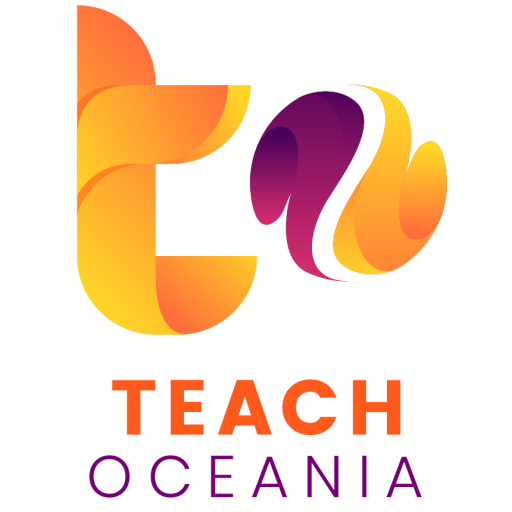FREQUENTLY ASKED QUESTIONS
The industry standard is 120 hours, so we don’t recommend taking a course with fewer hours. Based on current professional expectations for English as a Second Language (ESL) training, the majority of employers require teachers to have an entry point of the 120-hour TESOL Certificate qualification.
You can start a TESOL course if:
- you are literate and are a native English speaker, or speak English fluently with minimal accent
- you are interested in teaching English online
- you are interested in travel and other cultures
- you enjoy talking to people and have good social skills
If you’re thinking about teaching communication skills to those who don’t speak English as their first language, studying a TESOL course may be for you. TESOL, courses help future teachers to learn the skills required to deliver EFL lessons to students systematically.
The TESOL Certificate course has been designed to take approximately 120 hours to complete. Students will be given 6 months to complete the course, although most students complete it within 2-4 weeks.
With a TESOL or TEYL from Teach Oceania, you are qualified to teach online or teach abroad. Teach Oceania works with partners in China, Japan, Germany, and others to offer exciting teaching and tutoring programs for suitably qualified TESOL Teachers.
When searching for a TESOL course, many students ask “does the 120-hour TESOL certificate enable me to teach English in a classroom or online?” The 120-hour TESOL Certificate is currently recognized internationally by ESL employers as a professional qualification and is the industry benchmark.
Earning a TESOL (Teaching English to Speakers of Other Languages) qualification is a valuable asset for teachers looking to enter the ESL field. It is a flexible certification that enables English language teachers to pursue many professional avenues.
While dependent on various factors, the overall professional outlook for TESOL /ESL teachers is excellent. TESOL and ESL represent an expanding worldwide market and professional rates of pay are competitive.
Are ESL /TESOL teachers in demand? Yes! There are currently more people learning English globally than speak English. As a result, online teaching opportunities are constantly emerging around the world to keep pace with demand.
Whilst most applicants can undertake TESOL or TEYL Certification without the prerequisite requirement for specific undergraduate qualifications, many employers and EFL governing bodies seek a minimum standard of a college degree for employment. This can vary by both employer and territory and should be researched accordingly.
A TESOL certificate enables you to move to another country and teach English to non-native speakers around the world or online. Teachers with a TESOL qualification usually work for overseas private language schools or public schools but many also teach at universities, international schools, or large companies.
With online teaching, educators may make as much as they would teaching at a physical school, and they are generally contracted jobs. But if you are looking to continue your travels, make your own schedule and avoid constricted working environments, then this is a wonderful way to supplement your income.
TEFL is for teaching English in non-native English-speaking countries to speakers of foreign languages whilst TESOL is for teaching English in both non-native and native English-speaking countries to speakers of foreign languages.
Whilst each professional online teaching engagement has different requirements, it is possible to teach English online with no prior degree. There are plenty of great companies you can work for if you’re working towards or don’t have an undergraduate certificate.
There is absolutely no limit to what teachers can do as TESOL-certified educators! Once graduates have decided on the type of students they want to teach, the work environment they prefer, and their teaching career goals, they can actively pursue employment opportunities to suit their lifestyle choices.
TEFL: Teaching English as a Foreign Language. This term is predominantly used when English is being taught in a country where it isn’t the native language (for example teaching English to Spanish learners in Spain).
TESL: Teaching English as a Second Language. This is where English is being taught to non-native speakers of English in a country where English is the native language (for example teaching immigrants to the UK or USA).
TESOL: Teaching English to Speakers of Other Languages. This term theoretically encompasses both of the above.
ELT: English Language Teaching. Mainly used by institutions in the UK.
EYL: English for Young Learners. A common term for teaching children.
ESP: English for Specific Purposes. This refers to teaching specialist and specific areas of English. There are many examples, such as English for International Banking and Finance, English for Nursing, for Tourism, etc.
EAP: English for Academic Purposes.
EAL: English as an Additional Language. This is a term becoming more widely used in the US and the UK and has a similar meaning to TESL.
Teaching English to Young Learners (TEYL) is a program designed to specifically introduce EFL educators to the theory and practice of teaching English to young learners. TEYL offers candidates teaching styles, learning methodologies, and practical application techniques required to instruct and implement the ‘day-to-day’ use of English from a child’s perspective.
The Teach Oceania team have over 25 years education experience in multiple worldwide territories. We provide the opportunity for people to teach English online and develop their TESOL education qualification portfolio at affordable prices.
Our 170-hour TESOL/TEYL course provides Teach educators with a broad base of knowledge with which to meet the needs of young learners learning English alongside their mother tongue and differentiating for variations in developmental stages. Catering to young learners’ demands, skillful manipulation of materials, and effective scaffolding of content is presented to optimize the students learning experience.
The demand for English teachers around the world is unprecedented. The globalization of business, travel and tourism, the internet, entertainment, and academic education means that the need for people everywhere to speak English has never been greater. Over the last decade, the demand for QUALIFIED English teachers has grown. Overseas employers now seek out people who have completed at least some basic training in teaching English and people who have an understanding of what is required once they enter the classroom. As native lecturers of English, graduates are in high demand for teaching positions around the world. Not only do they deliver SPOKEN English to the classroom, but they also bring colloquial UNDERSTANDING of the language and understanding of the unique way in which English functions in the real world.
While pay depends on your qualifications and specific circumstances, you can expect to make anywhere from $10-$25/hour as an independent online English teacher.

CONTACT US
GET IN TOUCH
- Location

Australia

Philippines

Pakistan
info@tio.edu.au
- Message us on Facebook
m.me/teachinternationalacademy
